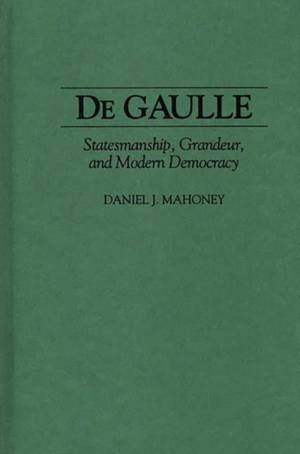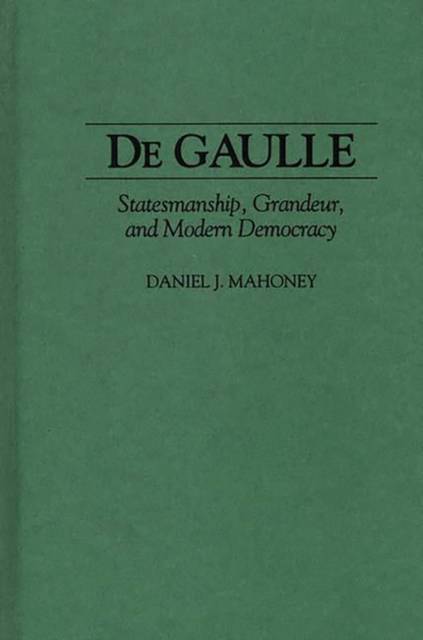
- Afhalen na 1 uur in een winkel met voorraad
- Gratis thuislevering in België vanaf € 30
- Ruim aanbod met 7 miljoen producten
- Afhalen na 1 uur in een winkel met voorraad
- Gratis thuislevering in België vanaf € 30
- Ruim aanbod met 7 miljoen producten
Omschrijving
Mahoney provides a comprehensive study of the thought and action of Charles de Gaulle. This volume is neither a biography nor a historical narrative, although it addresses important aspects of de Gaulle's life and political career. Mahoney asserts that de Gaulle is systematically misunderstood, especially in the Anglo-American world. He is sometimes dismissed as a narrow or quixotic nationalist, pigeon-holed as an irrational anti-American, and often labelled with various anti-democratic appellations such as Bonapartist or Nietzschean. In responding to this wide-spread misunderstanding, Mahoney analyzes de Gaulle's approach to the problem of modern democracy, and he shows that de Gaulle neither despaired of liberal democracy nor succumbed to the illusions that anything is better than democratic mediocrity.
De Gaulle believed that human beings were political animals who naturally desired to live in communities dedicated to shared, noble purposes. He also knew that modern men are individuals who resist or ignore these purposes. The statesman-writer de Gaulle believed it was the task of statesmanship to kindle these political purposes by reaching for the summits--for the dazzling light of national unity and ambition that he called grandeur. Mahoney shows that de Gaulle did not despair of liberal democracy; he did not succumb to the illusions of the impatient or tyrannical that anything is better than democratic mediocrity. This is an important corrective to scholars and students of modern political thought and European history, as well as an invaluable guide to democratic statesmanship in our time.Specificaties
Betrokkenen
- Auteur(s):
- Uitgeverij:
Inhoud
- Aantal bladzijden:
- 208
- Taal:
- Engels
Eigenschappen
- Productcode (EAN):
- 9780275949228
- Verschijningsdatum:
- 14/05/1996
- Uitvoering:
- Hardcover
- Formaat:
- Genaaid
- Afmetingen:
- 152 mm x 229 mm
- Gewicht:
- 471 g

Alleen bij Standaard Boekhandel
Beoordelingen
We publiceren alleen reviews die voldoen aan de voorwaarden voor reviews. Bekijk onze voorwaarden voor reviews.











